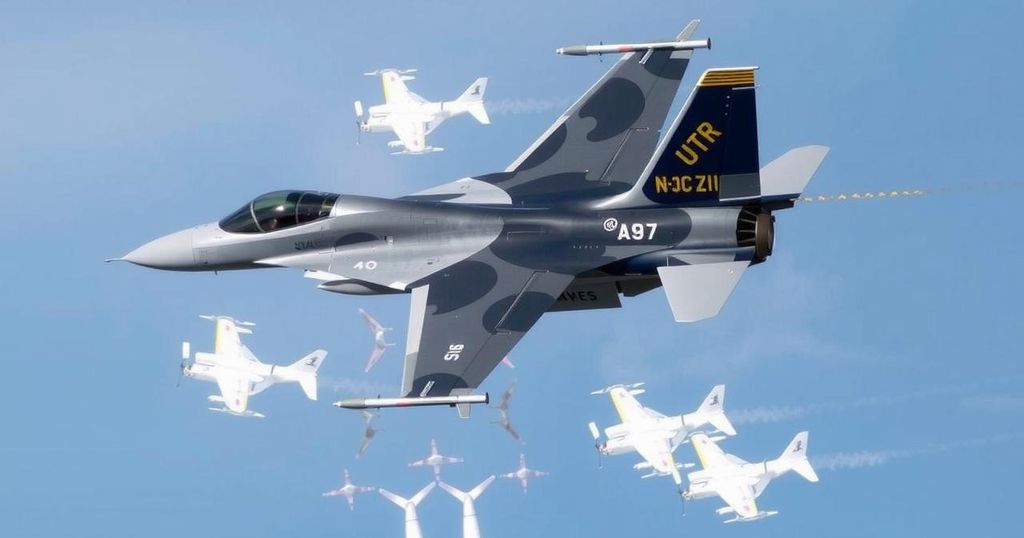Escalating Tensions in Syria: A Precursor to NATO vs. NATO Conflict?

Tensions between the United States and Turkey over operations in Syria have escalated with the Syrian Democratic Forces successfully downing a Turkish Bayraktar TB2 drone. This incident raises concerns of a NATO vs. NATO conflict, especially following a previous U.S. engagement involving a Turkish drone. Accusations of ceasefire violations further complicate the situation, as the United States shifts its military presence in the region.
Recent developments in northern Syria raise alarming prospects regarding the potential escalation of tensions between NATO allies, particularly the United States and Turkey. The Syrian Democratic Forces (SDF) have claimed responsibility for downing a Turkish Bayraktar TB2 drone near the Karakozak Bridge in Raqqa on January 1, 2025. This incident marks a significant shift, indicating increasing hostilities amidst conflicting interests in the region. As the SDF reported, this is the third Turkish drone downed by their forces in a month, amplifying concerns over Turkey’s military operations against Kurdish groups, which the U.S. supports.
The Turkish Bayraktar TB2 drone has gained notoriety for its advanced capabilities and has seen various combat deployments. The SDF has effectively neutralized such threats, as evidenced by a prior successful shootdown in mid-December. Compounding these tensions is the awareness that the U.S. has previously shot down a Turkish drone—a rare instance of direct military engagement between NATO members. This incident occurred when a U.S. Air Force F-16 intercepted a Turkish drone that posed a risk to American forces in northeastern Syria, emphasizing the precarious security dynamics at play.
Consequently, the SDF has accused Turkey and its allied forces of violating ceasefire agreements, claiming a consistent escalation of aggression while undermining diplomatic efforts. Even as the U.S. asserts its role as a mediator, the ongoing conflict continues to pose challenges to regional stability. The Department of Defense has reaffirmed the ceasefire’s status in the Manbij region, yet the situation remains tense with both sides attributing blame to one another, highlighting a pervasive climate of mistrust.
With reports of an impending expansion of U.S. military presence in northern Syria, the geopolitical chess game appears to intensify. Visual evidence suggests a strategic repositioning of U.S. forces and possibly the establishment of new coalition bases near contentious areas like Kobani. These developments substantiate concerns that the Syrian conflict could evolve into a confrontation between NATO allies, posing profound implications for international relations and regional security.
The geopolitical landscape in Syria is exceedingly complex, characterized by the involvement of multiple foreign powers, including the U.S., Turkey, and various Kurdish forces. The Syrian Democratic Forces (SDF), predominantly composed of Kurdish groups, have received support from the U.S. in combating the remnants of ISIS. However, Turkey perceives these forces as a direct threat due to their affiliations with the PKK, a Kurdish militant organization. This divergence in interests has led to recurrent military confrontations, further complicated by the historical context of U.S.-Turkey relations within NATO.
In summary, the recent downing of Turkish drones by the SDF and the previous engagement of U.S. military forces against Turkish aircraft illustrate a troubling pattern of escalating tensions between NATO allies in Syria. The shifting dynamics, along with the accusations of ceasefire violations, suggest a precarious balance of power that could lead to a wider conflict unless diplomatic solutions are effectively pursued and respected by all parties involved. Continuous monitoring of the situation is essential to avert further deterioration of relations between allied nations.
Original Source: www.india.com








